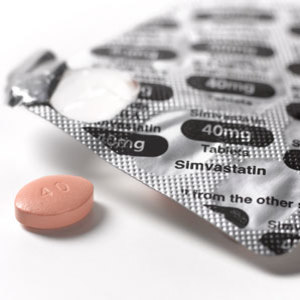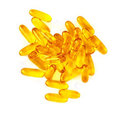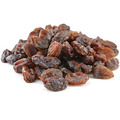All about statins
Around seven million people in the UK currently take statins to keep cholesterol levels under control and prevent heart disease. But new guidelines suggest doctors should be prescribing even more of them. Here's all you need to know. By Jane Murphy

What exactly are statins?
Statins are a group of medicines that help lower the amount of 'bad' cholesterol (LDL) in the blood. They're taken daily as tablets or capsules. They work by blocking a liver enzyme that's needed to produce LDL. High levels of LDL causes fatty deposits, which harden and narrow the arteries. This in turn can lead to heart disease, angina and stroke.
Who should take them?
Your doctor may prescribe statins if your cholesterol levels put you at higher risk of heart disease or stroke. Factors such as your age, weight, lifestyle and medical history will also be taken into consideration.
New guidelines, published by the National Institute for Health and Care Excellence (Nice), will now allow doctors to offer statins to more people. Previously, these cholesterol-lowering medicines were offered to people who had a 20 per cent or greater risk of suffering a heart attack in the next 10 years. But, following a major review, Nice has revised its guidelines to include anyone at a 10 per cent risk in the next decade.
Prior to the change in guidelines, around 13m people in the UK were considered suitable for statins, but just seven million chose to take them. The change will make an estimated further 4.5m people suitable for the drugs, but only half are likely to take them. Nice believes these measures could save up to 4,000 lives across the next three years.
What about the side effects?
Most people who take statins don't experience any side effects. But some do report problems - usually mild - such as muscle and joint aches, digestive complaints, nausea, headaches, nosebleeds, depression and tiredness. It's a daunting-sounding list - but it's worth bearing in mind that no medication is completely free of possible side effects.
In fact, a recent UK study, published in the 'European Journal of Preventive Cardiology', concluded that taking statins carries a very low likelihood of adverse effects. Patients who took a placebo experienced more symptoms than those who were taking the medication for real. Another recent review by the Government's Medicine and Healthcare Products Regulatory Agency found that most people tolerate statins well. When a small proportion of patients did suffer minor side effects, this mostly constituted mild muscle pain.
Very rarely, statins can cause more serious problems that affect the muscles and liver. For example, about one in 100,000 patients experiences a condition called rhabdomyolysis. This is when muscle proteins build up in the kidneys. Most patients recover after dialysis.
What's the alternative?
Taking statins isn't the only way to reduce cholesterol and tackle risk of heart disease and stroke. Most notably, lifestyle changes can make a huge difference, too - and your GP will normally recommend you try these first.
'Doctors will now be able to offer a statin to people at a lower risk of heart attack and stroke, but their prescription is not mandated,' says Professor Peter Weissberg, medical director of the British Heart Foundation. 'Just as important is the emphasis on trying lifestyle changes before considering treatments with drugs.'
Some examples? Take regular exercise, quit smoking, cut your alcohol intake and eat a healthy, balanced diet that's low in saturated fats and high in omega-3 fatty acids (found in oily fish, walnuts and avocados). However, dietary changes on their own aren't usually very effective at significantly lowering cholesterol.
Do I need a prescription?
Low-dose statins are available over the counter from pharmacies. But if you're at increased risk of heart disease or stroke, you'll need a prescription for a higher dose from your GP. Either way, it's always wise to speak to your GP about what's best for you.
Anything else I need to know?
Statins are best taken at bedtime because more cholesterol is produced while you sleep. If you miss a dose, don't take an extra one to make up for it. Simply take your next dose when it becomes due.
Another important tip? You should avoid eating grapefruit - or drinking grapefruit juice - when taking statins. The reason? Grapefruit increases the concentration of certain types of statin in your bloodstream, which means there's a higher risk of side effects such as muscle inflammation. Other drugs can interfere with statins, too - so if you experience any adverse reactions at all, consult your GP as soon as possible.
Where can I find out more?
Always read the leaflet that comes with any statins you're prescribed. And talk through any concerns you may have with your doctor.
You can download a free information sheet about statins from the British Heart Foundation.
You might also like...
Minimise your risk of heart disease
Good, high or too low? Cholesterol explained
10 ways to lower your cholesterol










